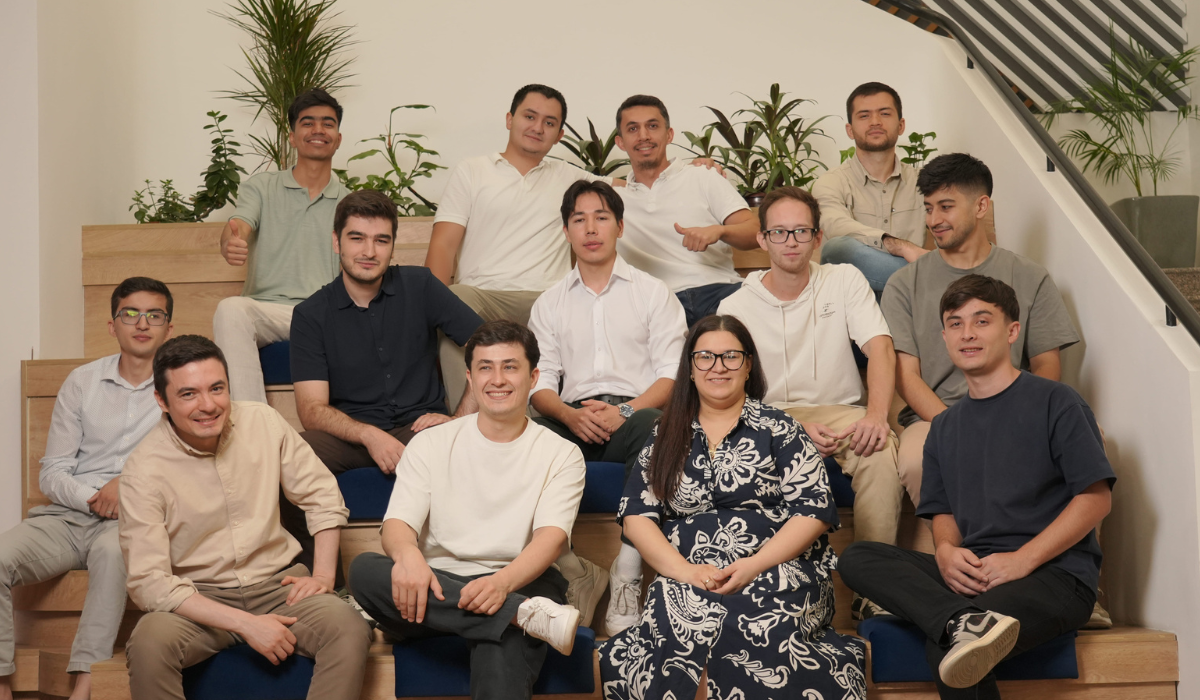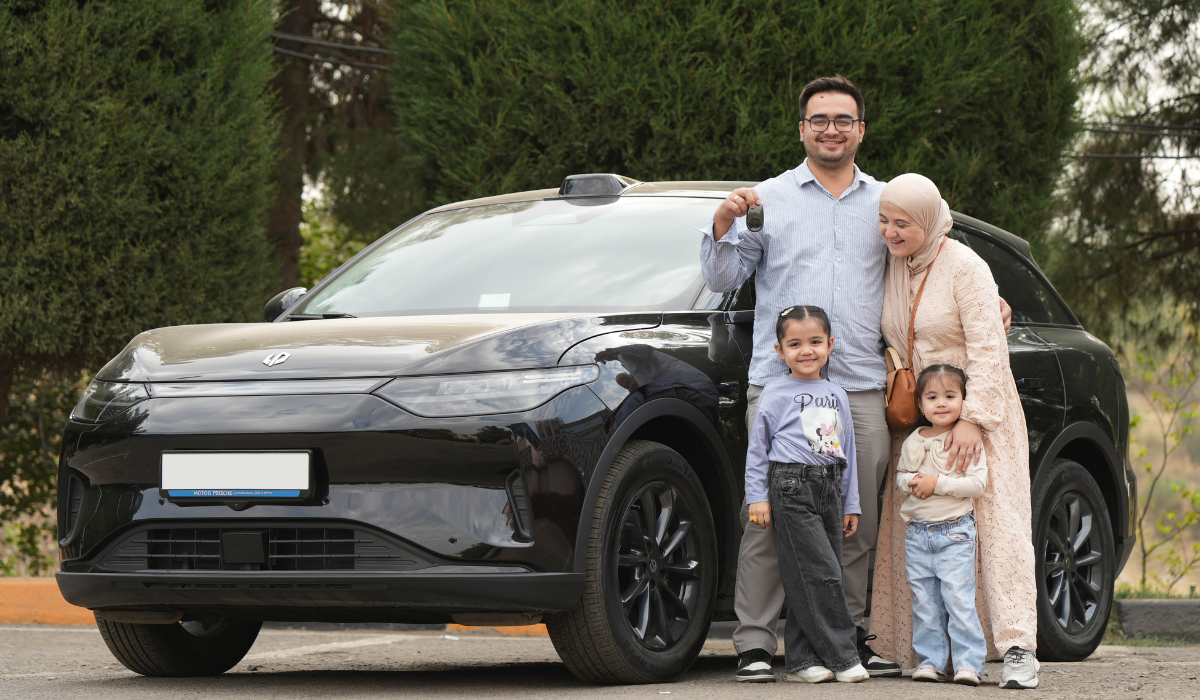At Ayan, our mission is simple: to serve people with fairness, compassion, and excellence – providing ethical, Sharia-compliant financial solutions that empower communities and help us earn the approval of Allah. Through innovation and technology, we want to make Islamic finance accessible, transparent, and seamless – building a bridge between timeless principles and modern needs.
Over 80% of cars in the UK are purchased on finance, and the overwhelming majority involve interest. Our job is to deliver a structure that is aligned with the Shariah not just in label, but in substance.
The Big Picture – No Riba
This is the core of the matter, so let us start with this.
Ayan does not charge interest – we buy the car and rent it to our customers during their term (with the ownership passing to customers under a separate contract at the end of the term).
One of the most common situations where riba is involved, is when money is given to a customer and more money is asked in return.
The confusion about riba and halal profit from trade is a common one. We read in the Holy Qur’an: “...they say, “Trade is no different than interest.” But Allah has permitted trading and forbidden interest.”
Conventional car finance can be done with or without a lender owning the car in the process. But even in the situations where the conventional lender would own the vehicle, they specifically charge interest.
Interest-based outcomes are especially obvious when the customers are late with their payments. Typically, late payment charges are involved, and in some situations these charges make a major portion of lender profits.
In a Shariah compliant finance, late payments are not allowed – a customer can be requested to make a donation to charity, however, never for the finance company’s profit.
When Ayan started in the UK, initially we had such a charitable clause, but a few months into operations in 2024 we decided that we would not even use a charity clause, though permissible. There are absolutely no late payment fees with Ayan, not even towards charity. That being said, it is important to remember – being late with your payments can impact your credit score.

Ownership Risk
Ayan takes the ownership risk of the vehicle, while the customer takes the usage risk. This is clear in many scenarios.
Business Car Finance
- Once we have paid for the vehicle and prior to the customer taking the vehicle delivery, if something happens to the vehicle – this is fully Ayan’s risk.
- If there is a total loss of the vehicle and if this happened without negligence or fault of the customer, the risk is again fully with Ayan – if the insurance payout does not cover for Ayan’s losses, Ayan bears the loss (if there is a profit, Ayan would give this to the customer).
Conventional finance providers do not take any of these risks. As soon as the finance agreement with the customer is signed, all the risks pass to the customer.
Personal Car Finance
In addition to the risks mentioned above, Ayan takes the following additional risks:
- If there are any inherent faults with the vehicle, which were present at the time of the purchase – the risk is with Ayan. Ayan will deal with the dealership or will repair the vehicle – the customer does not pay for the repair.
- The customer can return the vehicle once half of total contract payments were made. If the customer has taken good care of the vehicle, there is typically nothing else that the customer needs to pay. Ayan will take the vehicle and the residual value risk of the vehicle. Meaning if the car is valued as less than the outstanding finance balance this would be at Ayan’s loss.
Conventional finance providers in personal car finance space can take these risks as well, however to align with our values Ayan goes beyond this – for example, in the scenario where a customer has returned the vehicle (after half of total payments were paid), Ayan sells the vehicle, and if a profit is made, though not obligated, Ayan returns the profit to the customer. Conventional car finance providers do not do this.
Transparency – No hidden charges, no surprises
There are no hidden fees with Ayan. Our revenue is clearly laid out to the customer, we show how much of each payment goes towards our revenue and towards building the ownership in the vehicle. With no hidden admin charge, or additional early exit or penalty fees.

Process – Why it matters
The process point might feel like a “technical” matter, but it’s an important matter in the Shariah. For example, the difference between halal and non-halal beef is in the process – and most of us make sure that the meat that we consume is halal.
We strictly follow each step in a process that is necessary for a Shariah compliant Ijara wa Iqtina. Ayan cannot rent a car that it does not own. Thus there are several steps involved, including:
- Customer signs the request for Ijara (a document where you officially request Ayan to purchase your chosen vehicle)
- Ayan buys the car
- Customer and Ayan sign the Ijara wa Iqtina agreement (This demonstrates your commitment to rent the vehicle for the specified period)
- Both Customer and Ayan sign a separate Sales undertaking agreement (which demonstrates Ayan’s promise to transfer ownership of the vehicle to you upon completion of your Ijara agreement)
- Customer pays monthly / weekly payments over the duration of the contract
- At the end, the ownership is transferred fully from Ayan to the customer under a separate Sales and Transfer agreement
Our processes strictly follow AAOIFI standards and our agreements were developed with senior scholars, including Mufti Muhammad Ibrahim Essa. Mufti Muhammad Ibrahim Essa is a well-known Islamic finance scholar who helps banks and insurers make products that follow Islamic principles. He studied and now teaches at Darul Uloom Karachi and has issued over 5,000 religious rulings. He is on the Shariah board of over 13 institutions and leads Alhamd Sharia Advisory Services, advising organisations such as Lloyd’s of London, United Bank Limited (Pakistan), Hayot Bank (Uzbekistan), and EFU Insurance and Takaful. He regularly speaks around the world and holds an AAOIFI certification for Sharia advisory and auditing. AAOIFI is an Islamic international autonomous non-for-profit corporate body that prepares accounting, auditing, governance, ethics and Sharia standards. It has 21 Shariah scholars on its board who come from 14 muslim majority countries.

What are some challenges we are currently working on?
Major Maintenance
In Ijara wa Iqtina, any repair related to usage (operating) of the vehicle is the responsibility of the customer. Repair related to ownership of the vehicle (let’s call this “major” repairs – these are, for example, engine failure due to inherent defect, structural faults) is the responsibility of the lessor.
Shariah law allows the rental to include a portion specifically for major maintenance. AAOIFI standard 9, paragraph 5/2/4 says: “It may be agreed that the rental should consist of two specified parts: one to be paid or transferred to the lessor and the other to be held by the lessee to cover any expenses or costs approved by the lessor, such as the cost of major maintenance…” – i.e. it is possible to have a higher rental amount, and then should the major repair occur, the lessor would do the repair. Or, for example, to double the rental amount in principal, but take only half. The lessee gets to keep the other half, but does the repair from the saved amount on behalf of the lessor (shortage would be covered by the lessor).
Whilst this is a viable solution, for most of the customers this would mean that islamic finance is much more expensive and complex than conventional finance.
Let’s take on this challenge. How do we make it competitive (not more expensive than conventional finance), and Shariah–compliant at the same time?
We can offer customers two options:
- Customers can pay a competitive rental amount from the start of the agreement, but should a “major” repair requirement arise, Ayan would finance this, if both parties agreed to a higher future rental (AAOIFI 5/2/5 “The amendment of future rentals is permissible by the agreement of both parties”). If parties do not agree on the higher rentals, parties can terminate the agreement and termination clauses would apply.
- Customers can opt instead to pay a slightly higher amount, this would result in the rental amount being a higher amount than conventional providers. Should a “major” repair requirement arise, Ayan would then repair the vehicle without any change in customers' future rental payments.
We currently offer only the first option. This is part of our business car finance agreements; for personal car finance agreements, we are currently preparing what is called “modifying agreements”, so that we can implement this.
But, we are also working to give customers the second option based on their preference soon – inshaAllah.
Insurance
There are many areas we want to keep improving on. One area we are not happy about at this stage is insurance.
Unfortunately, there is no halal car insurance in the UK and it is a complex area with significant regulatory requirements when it comes to any part of the insurance process. We are working on this – but it feels like this is going to be a long process. We will get there inshaAllah.
Our Shariah audit allowed us an exception on this matter, given the lack of any available halal options (ḍarūra).

Closing Note
Building a halal business is a major responsibility – but doing it for the right reasons and succeeding in helping millions, is the main priority. Not to mention, the non-financial impact can be tremendous.
Tens of millions of drivers in the UK pay interest on their car finance. Our job is to make sure there is a riba-free alternative as competitive as the non-halal alternatives and open to everyone. May Allah help us succeed.
Thank you for taking the time to read through this. If you have any questions, criticism, suggestions or ideas – we would truly appreciate it if you can share those with us on team@ayancapital.co.uk. This only makes us better, and improves our services.
With much love 💚
Ayan team








.svg)



.webp)

.png)

.png)




